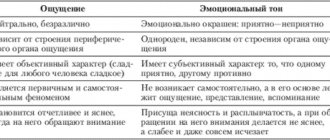Hi all! Today I would like to raise the topic of success, namely, how emotional intelligence affects it. Recently, psychologists and coaches have been actively discussing what qualities a person should have in order to be happy and successful. Not long ago we began to hear the concept of “emotional intelligence” (EQ). Not everyone understands what it is, since intelligence is generally considered to be the ability for logical thinking, quick wits, and mathematical talents. Below we will look at what EQ is, what role it plays in our lives, and how to develop emotional intelligence for every person.
COMPLETE LIST OF HUMAN SKILLS
What is emotional intelligence in simple words
Daniel Goleman is the first psychologist to introduce the concept into science. In his book “Emotional Intelligence,” he reveals in detail the meaning of the phrase and draws readers’ attention to the main characteristics of a person with a developed EQ. This is an easy to read work that is useful in studying the emotional sphere of a person.
In simple words, emotional intelligence is a person’s ability to control their emotions, pay attention to the emotions of other people, sympathize, empathize, feel the needs of other people and be aware of their own needs. If a person has learned to manage emotions, he communicates easier and does his job.
Daniel Goleman is the author of Emotional Intelligence.
#3. Curiosity
“I don't have any special talents. I am just curious". - Albert Einstein
Show me a curious person who is willing to learn and improve, and I will show you a success story waiting to happen. Curiosity breeds passion, which in turn breeds high productivity and motivation. This is important for the development of any type of intelligence, especially emotional intelligence. Curiosity is the spark that will always fuel your desire to understand people.
How to develop this?
Curiosity, to one degree or another, is inherent in all highly intelligent creatures, especially humans. You just have to encourage it and give in to it. Fortunately, when it comes to studying human behavior, it is difficult to find something more interesting and close to all of us. You're just getting started.
Why is it so important in life
Emotions are an integral part of every personality. It is emotions that hinder or help us interact with other people, do our work, and work in a team. All these skills contribute to our effectiveness. Which manager will the company president trust more: only the smart one or the one who can organize the unified work of the team and focus on results? Of course, the second one.
With this clear example, we see that it is not enough to be smart, you also need to be able to interact with people. Today, many psychologists say that parents focus on education, clubs, and extracurricular activities, but if a child is insecure and has not learned to communicate, he will not be able to achieve success in life.
Understanding one's own emotions allows a person to respond correctly to different circumstances in life. Understanding other people's emotions helps you communicate effectively. A person with a highly developed EQ easily adapts to any new conditions. For example, he will not impose his help on an irritated boss, or he will see a sad person and try to support him.
Show emotions with a slight delay
Sometimes we react too harshly to a situation and then regret it. Or, sometimes, in the heat of the moment, we say something that we later want to take back. It doesn’t matter whether you are prone to such impulsive reactions or not, delaying the expression of emotions is equally beneficial for everyone.
Nobel laureate and author of the book “Thinking Slowly... Decide Fast” Daniel Kahneman identified two systems of thinking. He called them System 1 and System 2, but they are also known as autopilot and pilot. Autopilot processes information using emotions and intuition. The pilot, on the other hand, uses rational thinking and works more slowly. It takes time to activate this system, but after that it vigorously analyzes all the mistakes that we make while the autopilot is operating.
Try counting to 10 before giving in to emotions or making impulsive decisions. This will give the pilot time to “turn on”, who will thoroughly study your feelings before you have time to throw them out on others.
Levels of Emotional Intelligence
Emotional intelligence has its own levels of development. Distinguishing levels helps to understand which level a person is at so that they can continue to develop this important skill.
- Knowing yourself. Understanding emotions begins with knowing yourself. When a person understands how he feels and what he wants at the moment, he can express his opinion and solve his problem. Understanding emotions helps to determine goals in work and family. For example, if a child is tired, he will say so, and it will be easier for parents to understand his lethargy.
- Managing emotions. Understanding emotions does not yet give the desired result. This is only the first step towards the formation of a successful personality. Managing them makes it possible to direct energy in the right direction. When a person is nervous, he doesn’t succeed in many things, everything falls out of his hands. But when he is balanced, then things work out.
- Recognizing other people's emotions. This makes it possible to “put out fires” or not get “under attack.” A person who is sensitive to the emotions of other people can react in time and direct the emotional storm of another past himself. For example, if a wife sees that her husband has come home from work irritated, she will first feed him and then tell him about the gas debt.
- Managing other people's emotions. This level is important for managers, team leaders and companies. When a person knows how to manage the emotions of others, showing empathy, compassion, understanding, in this way he gains authority. Channeling negative emotions into the work stream is an important quality for an effective manager.
- Taking into account the psychological characteristics of others. This is the maximum level of development of emotional intelligence, which allows a person to adapt to any environment. If he “reads” people, it will not be difficult for him to start a conversation with anyone and about anything. It will also be easy for him to achieve his goals in communication and communication.
This is a conditional division, but here you can conduct your EQ test by looking at what skills you already have.
Learn to motivate yourself
Most people try to find inspiration or motivation first so they can take some meaningful action that will change their life. They believe that once they choose the right method, they will have an epiphany and begin working, training, or creating. However, next week the fuse ends and everything returns to the starting point.
Therefore, you should use another method. When you need to motivate yourself, just start doing something.
Action is not so much a consequence of motivation as it is a cause.
Don't have the strength to get started? Sketch out a to-do list, make a plan, complete the smallest item - before you know it, you’ll have done half of what you planned. No incentive to go to the gym? Buy a trial subscription for a month to “just have a look,” and you won’t notice how you’ll be drawn in.
There is no need to wait for lasting motivation to arise. Do something first, and the desire to continue will appear later. Be aware of how you feel before, during and after the action and use those emotions.
Keep in mind that you won’t always be motivated by “good” feelings. You may become frustrated, irritated, or anxious if you don't achieve results right away. Turn those emotions into motivation and just keep going. In the end, the sweetest victory is the one you achieve against all odds.
Signs of High EQ
In psychology, the definition of emotional intelligence appeared relatively recently. There was a lot of controversy, but still scientists recognized EQ as a scientific concept. Therefore, we will consider the signs of a high level of EQ from the point of view of the classical model of Daniel Goleman.
- People with highly developed EQ are characterized by a high level of self-awareness. They know their abilities and can ask for help when needed. We teach this skill to our child in childhood, when we say: “If you can’t button your jacket, ask mom or dad,” “If you can’t put on your shoes, let’s learn together.”
- Self-government gives you the opportunity to control yourself anywhere. The ability to restrain a barrage of emotions, calmly discuss sensitive moments, and prevent actions with bad consequences is worth a lot. Such people are always valuable; in our culture, self-control is valued especially in men.
- A motivated person also has a high level of EQ. When he independently finds interest in a boring activity, it helps in adult life. Preschoolers do not have this skill. At school age, the skill needs to be developed. But the problem is that school doesn’t teach this.
- Empathy, that is, empathy and “reading” people’s emotions, helps you figure out how to behave. Taking into account the emotional state of the interlocutor allows you to conduct a dialogue correctly, achieving the necessary results. For example, a partner on a long journey should be offered a shower and a meal, be sure to inquire about his well-being, and then resolve issues.
- Developed social skills also distinguish a person with developed emotional intelligence. For a leader, this characteristic is especially important. This involves the use of empathy and knowledge of human psychology. As a result, we get a convincing and communicative leader in business or other work, whom subordinates want to follow.
Also, people with a high EQ are characterized by responsibility, self-discipline, and the ability to behave confidently in any company.
Signs of Low EQ
Now let's figure out why it can mean more than IQ. By the way, be sure to read how to develop IQ. The emotional component of knowledge will always be important, since it is about life, it shows life. You won’t surprise anyone with dry knowledge, but the ability to communicate allows you to acquire, retain and apply knowledge.
Therefore, it is important to understand what the signs of low EQ are, so as not to stand still, but to develop.
- Easily stressed – You are unable to manage your emotions when they escalate, leading to greater levels of stress.
- You depend on external influences and assessments - your boundaries are very blurred, they “sit on your neck”. You either allow yourself to be used or attack aggressively.
- You cannot describe the feelings you are experiencing - a clear definition of your condition helps to cope with it, but when a person simply says: “I feel bad,” then it is more difficult to “pull yourself together.”
- Unjustified search for defense of your opinion - when you express an idea, you immediately try to find arguments, justifications for its defense. People with high EQ do not do this; they admit their mistakes and quickly switch.
- Resentment – negative perceptions of other people hinder development; resentment will not bring anything good. If you are constantly offended by everyone, then you urgently need to get rid of this bad habit.
- A constant feeling of being misunderstood - it is difficult to find words to describe your thoughts and events. Try to immediately notice when you have poorly expressed an idea in order to clarify what was said. You can study the other person's nonverbal behavior to see if everything is clear to him.
- You can't be angry - emotional intelligence doesn't stop you from feeling negative, you can't be good all the time. You need to be angry, but it is important to learn to manage such reactions.
Setting up your intuition
Intuition is the ability to comprehend something on an unconscious level. Intuition unites the conscious and unconscious parts of our mind, connects emotion and thought.
The mind and body are constantly receiving information from the world around us. When something evokes a strong emotion in us, our subconscious mind turns to past knowledge and experiences, remembering a specific set of circumstances - events, actions, patterns of behavior, physical sensations, thoughts, smells, tastes and/or sounds. It uses this information to instantly warn us that we should stop or, alternatively, move forward because the set of circumstances is right.
Intuition uses all thoughts and levels in search of a direct answer. However, this happens so quickly that we do not have time to realize and understand the process itself.
ON PRACTICE
Pay attention! Very often, intuitive guesses are lost in the flow of everything that happens within us and around us. When you feel your intuition trying to tell you something, push through any obstacles and obstacles to tune into your true feelings, thoughts, words and images that come from your mind.
In any situation, remain open to your intuition. Stay alert and you'll notice a combination of signals that may be conveying the same message. When the combinations of messages your senses receive come together, your intuition will speak loud and clear and everything will instantly fall into place.
Monitor your surroundings. All your senses are constantly collecting information about the world around you. Be more aware of your surroundings—sights, smells, sounds, etc.—in your daily life, and be alert when something is wrong or wrong.
Listen to your body and the signals it may be sending you. When something feels wrong or you are unsure about something, the physical component of the emotion often alerts you to it. Remember, for example, how someone tried to force you to do something that you did not think was right. What physical sensations did you experience?
Be respectful of other people's intuition. Listen to other people's intuition. When someone tells you that they "just know" something but can't explain it, take it seriously.
Emotional Intelligence Skills
Even children are taught EQ skills. In childhood, it is better to vaccinate them during classes for children in kindergartens or schools. In adult life, such skills are already practiced with practical tasks at work or in social circles during training. For those who really want to develop their skills, but do not have the opportunity to attend training, there is the opportunity to take training online or perform development exercises on their own.
So, what develops our emotional intelligence? The structure of such skills is a little confusing, so below we will figure out what’s what.
They are divided into two large groups: personal and social. The first are personal qualities, the second are a person in society. In turn, these two groups are divided into important character traits cultivated in a person.
Personal
Personal skills refer to self-awareness and self-control. Let's take a closer look at them.
Self-awareness - how I present myself. In humans, it is expressed by three characteristics:
- Accurate self-esteem - a person does not hesitate to evaluate himself depending on the opinions of other people. He doesn't care what others think about him, he knows himself and his needs. In other words, he didn’t care about the opinions of others.
- Emotional self-awareness - a balanced person also reacts to external stimuli, but he knows how to recognize “dangerous” emotions and extinguish them. To put it simply, when everything is boiling inside, he clenches his teeth, clasps his hands behind him, but everything is calm on his face.
- Self-confidence is the basis of successful communication; self-confidence develops in the family and environment.
Self-control or willpower in an individual is manifested in the following traits:
- Openness - a person is open to new social contacts, he can talk about different topics with different people.
- The will to win - the desire to achieve more is a powerful driver of personal growth, overcoming difficulties also helps to develop.
- Adaptability – by understanding one’s own and others’ emotions, moods and psychological characteristics, a person can feel “at ease” everywhere.
- Curbing emotions - prohibiting hysteria in time or showing a little anger to achieve goals, that is, using emotional reactions for the benefit of the overall result.
- Initiative - search for the best solutions, he is not shy to express everything he thinks.
- Optimism - positivity always attracts people; there is already enough negativity; if a person is constantly positive, he is more successful.
Social
Social skills in an adult mean sensitivity to changes in mood in a group and relationship management.
Social sensitivity consists of:
- empathy - an emotion aimed at sharing the experiences of another;
- business awareness - it is impossible to understand a person without knowing about him, it is important to ask the right questions to help;
- precaution - a person can predict the further development of events.
Relationship management has the following components:
- influence - a responsible person who controls his emotions can influence others;
- inspiration – a person with a developed EQ motivates himself and others, he is charismatic and bright;
- assistance in self-improvement - an empathic person infects others with his positivity;
- Conflict resolution is an important characteristic of a group leader;
- promoting change - timely curbed emotions help change;
- strengthening personal relationships;
- teamwork, cooperation.
These are very useful qualities and skills. We’ll talk further about how to develop them and how to find out what level of development you are at.
#2. Self-awareness
“Know thyself” – inscription on the wall of the Temple of Apollo at Delphi
Self-awareness is the art of understanding yourself, your stimuli, motives and subsequent reactions. It is also an important part of what we call self-control. Self-awareness has an internal aspect - how we perceive ourselves; and external - understanding how others see us.
How to develop this?
As for the internal aspect, here you must observe yourself, analyze your motives and actions. You can start with a SWOT analysis, which will help identify the main strengths and weaknesses, as well as threats and opportunities. In addition, you should look at yourself from the outside. And there is no better way than feedback from others. Just ask someone you know to conduct the same SWOT analysis of your personality.
Online emotional intelligence test
Diagnosis of any psychological characteristic of a person is best done under the supervision of a specialist. But now online tests are common, in which the results are immediately visible.
You can take the emotional intelligence test from Vikium online for free.
The test consists of 12 stages, at each of which you will be shown the face of an unknown person. An animation with an emotion will flash for just one second. You will have to define it. I completed the test in 4 minutes and scored 67%. I think this is not enough. I will develop my EQ.
Online test to determine EQ level from the company “Vikium”
In psychology, a valid (truthful) testing method is the Hall test for diagnosing emotional intelligence. The technique helps to assess how capable you are of building relationships and maintaining them. By answering all the questions, you will determine your EQ level.
#5 Needs and desires
All human behavior can be placed within Maslow's hierarchy of needs. The base of the pyramid is occupied by such basic things as physiological needs and safety, and at the top are aesthetic and spiritual needs. An emotionally intelligent person must be able to attribute certain human actions to different levels of needs in order to understand true motivation. It is also necessary to distinguish actual needs from desires: the latter are aimed at realizing the former.
How to develop this?
Use the Why Diagram technique. Take any action and “Why did the person do this?” Once you have your answer, use the same question again. Sooner or later you will reach some level of Maslow's pyramid. And very often it will be the bottom one.
How to develop emotional intelligence
There are many methods for developing EQ. Depending on the age of the person, different games and exercises are used. In children, skill development occurs through play. Acting out skits on sympathy, empathy, and control of emotions allows the younger generation to better control their emotions.
Board games are suitable for teenagers, where they will use pictures to determine models of correct behavior and role-play conflict situations. During adolescence, it is very important to control your emotions and understand the feelings of others. When a teenager knows who he is and what he wants, it is easier for him to live through such a difficult transitional age.
Adults have heard a lot about the role of emotional intelligence; it is likely that many choose to educate themselves on this topic. But it is possible to develop skills in a short time and significantly increase an adult’s EQ level only in a group. The ideal option is to attend a thematic training.
Exercises to develop emotional intelligence
Now let's see how to develop this skill yourself. Psychologist Victoria Shimanskaya presents 6 exercises for developing EQ:
- “Box of Happiness” – create such a box with your child or for yourself in your mind. “Put” in it associations of happiness that can be understood through the senses (a smile, the sound of the sea, a sweet fruit, the smell of rain in the forest, hugs).
- Language of emotions - start communicating in your family using the formula “I would like...”, “I feel...”, “I’m glad...”, “I’m upset...”
- What are the feelings today - a game to determine the feeling of the day. Every evening, choose a dominant feeling; to do this, you can print out a list of them.
- Emotional photos - it is important to take family photos that highlight impressions rather than events.
- Emotions in colors – paint your emotions in different colors.
- Compass of emotions - prepare 8 cards (joy, fear, interest, inspiration, surprise, anger, trust, doubt). When naming a situation, place one card upside down in a circle, the other players must guess what emotion it is.
Training on the development of emotional intelligence
An effective EQ training program will help you reinforce theory with practice. After mastering it, you will figure out how to improve your communication skills, learn to understand emotions, manage them, understand microexpressions, catch a lie, remain calm and effectively resolve conflict situations.
Emotional intelligence is a course from the brain development platform Vikium. It consists of 20 lessons and is designed to improve identification, understanding, management of your emotions, as well as to recognize the emotions of others.
The author of the course is Oleg Kalinichev. He is the director of Paul Ekman International in Russia.
Paul Ekman is a world expert in the psychology of emotions, deception detection and nonverbal behavior:
- included in the top 100 most influential people in the world;
- intelligence consultant for the CIA, FBI, Scotland Yard;
- the world's best “LIVING LIE DETECTOR” Forbes;
- 50 years of scientific research;
- author of 170 scientific papers and 15 books;
- scientific consultant for the TV series “Lie to Me” and “Inside Out”.
What you can learn by taking this course:
- recognize deceitful people you meet at work and in your personal life;
- see the manifestation of empathy and other hidden emotions;
- the ability to “read” the interlocutor;
- determine where the information leak occurred;
- the ability not to show off your emotions;
- the ability to see the manipulator;
- improve relationships in your personal life;
- become confident.
The cost of training is 990 rubles. Registration is made automatically on the website.
Within 7 days you can get your money back if you are not satisfied with the course.
This investment in yourself will pay off very quickly, and you will become much more productive.
In any case, friends, you have several options on which way to go: you can improve yourself or buy a course for little money and achieve results as quickly as possible.
There is also an article on levelself.ru that contains the best courses on EI.
Check out 14 EQ courses
The best books to improve your emotional intelligence
To develop EQ, it is best, of course, to take special courses, but it is also important to combine theory with practice. In psychology, the best books on this topic are:
- Veronica Stepanova “Psychology without prohibitions!” – a modern author who describes successful interpersonal communication in an easy way (electronic version on liters | paper version on labirint.ru | audiobook on liters).
- John Gottman and his several books for parents and spouses will allow you to develop the power of emotional intelligence in the family (electronic versions on liters | paper versions on labirint.ru).
- David Caruso “The Emotional Intelligence of a Manager” is an excellent guide for project managers that helps them feel confident in negotiations and communication with subordinates (paper version on labirint.ru | audio review of the book on liters).
- Sergey Shabanov “Emotional intelligence. Russian practice” (electronic version on liters | paper version on labirint.ru).
- Radislav Gandapas “Full J. Life as a business project” (electronic version on liters | paper version on labirint.ru | audiobook on liters).
- Alexey Krasikov “I'm fine! Self-help for neuroses” (electronic version on liters | paper version on labirint.ru | audiobook on liters).
- A team of authors edited by D. Lyusina and D. Ushakova “Social and emotional intelligence” (electronic version on liters | paper version on labirint.ru).
Meditate
Meditation promotes AA Taren, PJ Gianaros et al. Mindfulness meditation training alters stress‑related amygdala resting state functional connectivity: A randomized controlled trial / Social Cognitive and Affective Neuroscience building new neural connections in the brain that help cope with stress and emotional outbursts. It especially helps men who find it difficult to express their feelings. Meditative practices allow T. Lomas, T. Edginton et al. Men developing emotional intelligence through meditation? Integrating narrative, cognitive and electroencephalography (EEG) evidence / Psychology of Men & Masculinity to move away from traditional gender stereotypes and constructively interact with your emotional side.
You can start meditating with two practices:
- Minimum 10 minutes of zazen meditation. Its main goal is to cleanse and calm the mind. Sit on the floor or mat with your legs crossed. Take a deep breath. Try to free your mind and not think about anything. Zazen develops attention, which in turn allows you to listen more sensitively to your own emotions.
- A minimum of 5 minutes of loving-kindness meditation. This practice will help control feelings towards others and make relationships much more positive and vibrant. Imagine the people in your life, focus on them and visualize how you share love and kindness with them and they return the same feelings to you.
Try different ways










